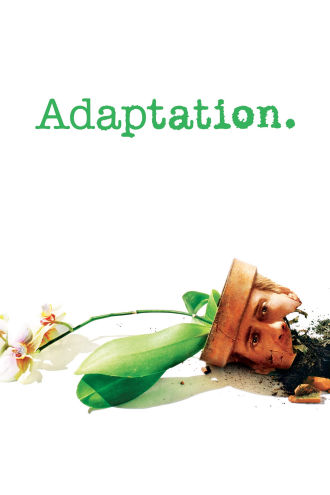Film Summary"Adaptation", a 2002 movie directed by Spike Jonze, breaks a number of conventions of narrative cinema, blending reality and fiction to provide an elaborate exploration of the creative process. It's a meta-film in which Charlie Kaufman, the real-life film writer of the movie, becomes a protagonist depicted by Nicholas Cage.
Plot SummaryNicholas Cage plays a double function in the movie-- Charlie Kaufman, an unstable and self-loathing film writer struggling with adaptation, and his fictional twin sibling Donald, a naïve yet optimistic aiming film writer. Charlie receives a commission to adapt 'The Orchid Thief,' a non-fiction book by Susan Orlean. The book focuses on John Laroche, an orchid poacher and the obsession of Orlean-- played remarkably by Meryl Streep.
Throughout the film, Charlie wrestles with writer's block and insecurity, making every effort to delve deep into the essence of the book without falling into the clichés of Hollywood dramas, like his sibling Donald, who flourishes on formulaic screenwriting lessons.
Complex NarrativesThe film interweaves three main narrative threads: Charlie's battle with his adaptation, Susan Orlean's fascination with John Laroche, and the real-life backstory of Laroche's orchid poaching. Jonze and Kaufman masterfully manage these numerous viewpoints, making sure an engaging watching experience and reflecting the film's wider themes of creativity, fixation, and identity.
Major ThemesAt its core, 'Adaptation' is about the creative process and its associated stress and anxiety. It explores the struggle in between imagination's unpredictable nature and the pressures of business Hollywood-- exhibited by Charlie and Donald's inconsistent attitudes towards screenwriting.
The film likewise delves into obsession, as manifested through Orlean's fascination with Laroche, and Charlie's fixation on successfully adjusting the book. The elusive ghost orchid that Laroche pursues acts as a metaphor for these fixations, which end up being devastating and take in the private characters-- another kind of adjustment.
Lastly, the film examines identity, personified in Charlie and Donald's characters. Charlie is filled with insecurity and continuously in his head, while Donald is carefree yet superficial. Director Spike Jonze cleverly blurs the lines in between the genuine and the imaginary, leading to a climactic twist that even more highlights the theme of identity.
ConclusionKaufman eventually combines his own life with that of Susan, Laroche, and Donald to complete his movie script. The movie ends in remarkable Hollywood style - Donald dies in a vehicle accident - a story Charlie had formerly turned down as too unimaginative. 'Adaptation' climaxes into a paradoxical spirits where the script Charlie loathed to write, saves him in the end.
'Adaptation' is a mix of imagination, funny, reflection, and individual battle. Its detailed movie script offers an introspective take a look at the process of creative development. With unforgettable performances from Nicholas Cage, Meryl Streep, and Chris Cooper, 'Adaptation' is a metafilm that eventually evaluates the limits of storytelling, making it among the most special movies of the 21st century.
Top Cast











